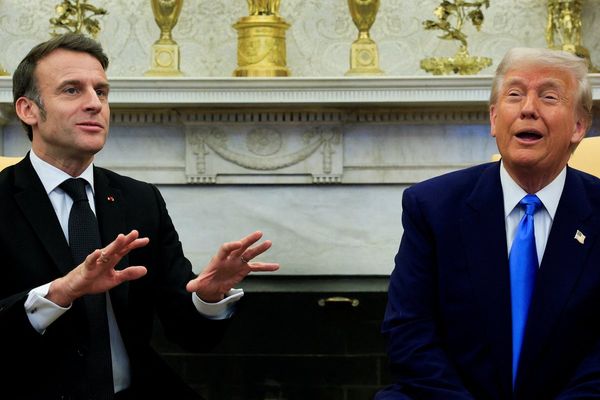
China has hit out at Australia again. This time for not siding with the “victim” in the ongoing tensions between China and the US in the Taiwan Strait resulting from US House speaker Nancy Pelosi’s visit to Taipei last week. The victim, as you might have guessed, is China. The Chinese embassy in Canberra has characterised its country as the wronged party in a game of US “political provocation” and, according to them, instead of condemning the perpetrator, Australia has erroneously attacked the victim.
Whether or not we find this depiction of events and responses mere theatrics, if you follow that narrative, this is not about Taiwan, it’s about Sino-US relations. The lens of western and US media coverage doesn’t seem to stray too far from this great power rivalry either. In regards to Pelosi’s visit, the satirical news site the Onion pointedly observed: “Who gives a shit what Taiwan thinks? This is about us and China.”
Indeed, there are consequences for Australia as tensions continue in the Taiwan Strait with Beijing’s recent military exercises around Taiwan, not least the prospects for Australia-China relations.
While we have seen modest and incremental progress over the last two months with the new Labor government, including meetings between senior Australian and Chinese ministers, this newly rekindled relationship is fragile. China’s criticism of Australia comes despite foreign affairs minister Penny Wong avoiding endorsing Pelosi’s trip to Taiwan.
The possibility of China lifting its trade sanctions against Australian exports, in particular coal, sounds promising for bilateral relations. Upbeat messaging coming from the Chinese state-controlled People’s Daily about Australia-China trade prospects points to a somewhat positive mood coming from Beijing, but all that hangs on tenterhooks. As Xiao Qian, China’s ambassador to Australia, observed in his National Press Club speech in Canberra on Wednesday, the relationship is at a “critical juncture”. While there appears to be the potential for compromise on trade issues, as the ambassador hinted, on Taiwan there is absolutely no compromise.
To frame Taiwan’s story around Sino-US relations obfuscates the voice of Taiwan and its people. Western media coverage of Pelosi’s visit was overloaded with intense speculation about the possibility of war. Presenting the situation as one of Sino-US rivalry largely discounts the views of Taiwanese, some of who questioned the purpose of Pelosi’s visit. Did it serve to advance Taiwan’s interests and sociopolitical stability? Some Taiwanese commentators highlighted the disjuncture between western and Taiwanese perspectives, asserting that western media neglected to include Taiwanese views, thereby weakening the symbolism and agency Pelosi’s trip was intended to bring.
Yet for everyday Taiwanese, life appears to continue as normal. During a recent WeChat exchange between my family members based in Taiwan, China and Australia, a cousin in China asked my Taiwan-based family whether there was calm in the neighbourhoods of Taipei. My aunt replied, “Peaceful evening”, and my uncle chimed in, “Don’t worry, nothing happened.” Of course, these are personal anecdotes and say little about the destabilising effects of Pelosi’s visit and China’s retaliatory measures. But what they do illustrate is the fact that many Taiwanese do not see world war three as imminent.
Let’s see Taiwan on its own terms and not through the lens of China, the US or even Australia. Successive opinion polls in Taiwan indicate that the majority of Taiwanese prefer some form of status quo. In fact, added up, a total of 82% of Taiwanese in June expressed this desire when considering unification with or independence from China. Various opinion polls from the Asian Barometer to the World Values Survey indicate that Taiwanese differentiate themselves from the Chinese. That source of difference in part comes down to the fact that Taiwan is a liberal democracy, and most young Taiwanese see democratic values as a key component of Taiwanese identity. Recent survey findings published by the Brookings Institution showed that no age group surveyed saw the Chinese government in a positive light. Those surveyed not only disliked the Chinese government but also saw it as a negative influence on Taiwanese society.
Yes, China’s bellicosity plays a significant part in consolidating Taiwan’s identity. But a more nuanced approach would investigate how Taiwanese identity emerges through the interaction of politics and its vibrant civil society. Various aspects of Taiwanese identity have come to the fore, from Taiwan’s Indigenous people to their LGBTQ community. These aspects are a product of Taiwan’s democratic processes and the pressure exerted by its civil society to ensure the protection of rights and equity for minority groups.
Taiwan’s journey in articulating a national and inclusive identity is reflected in Australia’s experiences, too. It may be easy to dismiss the self-centredness of China and the US when they see the world through their narrow prisms. But as Australians, we have no excuse. Australia is a nation built on migration with deep connections to the peoples and countries of the Asia Pacific. Australia’s responsibility is to see, hear and advocate for the people of Taiwan. There is much more to Taiwan’s existence than its relationship with China.
• Dr Jennifer Hsu is a research fellow in the public opinion and foreign policy program at the Lowy Institute







